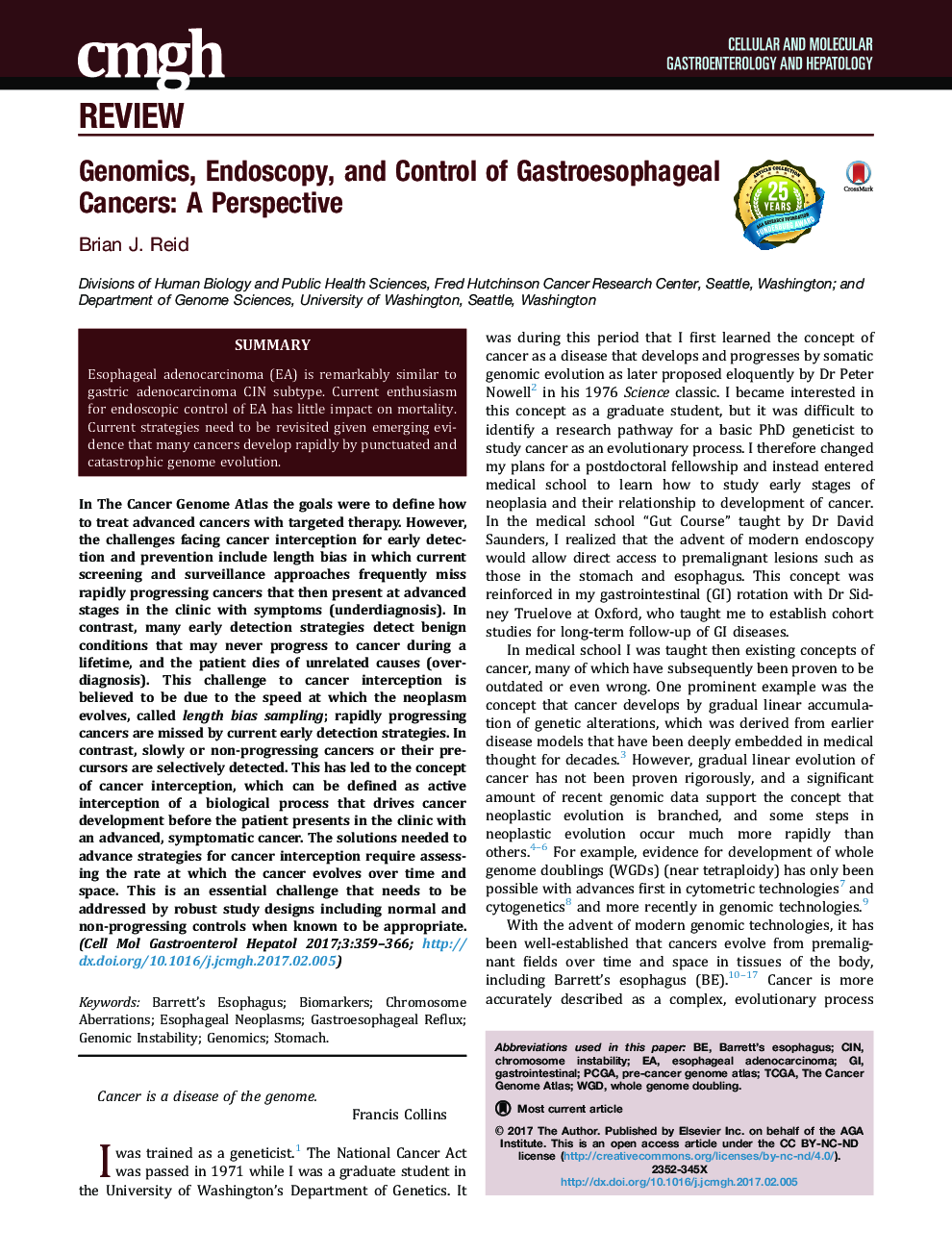| کد مقاله | کد نشریه | سال انتشار | مقاله انگلیسی | نسخه تمام متن |
|---|---|---|---|---|
| 5517226 | 1400956 | 2017 | 8 صفحه PDF | دانلود رایگان |
In The Cancer Genome Atlas the goals were to define how to treat advanced cancers with targeted therapy. However, the challenges facing cancer interception for early detection and prevention include length bias in which current screening and surveillance approaches frequently miss rapidly progressing cancers that then present at advanced stages in the clinic with symptoms (underdiagnosis). In contrast, many early detection strategies detect benign conditions that may never progress to cancer during a lifetime, and the patient dies of unrelated causes (overdiagnosis). This challenge to cancer interception is believed to be due to the speed at which the neoplasm evolves, called length bias sampling; rapidly progressing cancers are missed by current early detection strategies. In contrast, slowly or non-progressing cancers or their precursors are selectively detected. This has led to the concept of cancer interception, which can be defined as active interception of a biological process that drives cancer development before the patient presents in the clinic with an advanced, symptomatic cancer. The solutions needed to advance strategies for cancer interception require assessing the rate at which the cancer evolves over time and space. This is an essential challenge that needs to be addressed by robust study designs including normal and non-progressing controls when known to be appropriate.
Journal: Cellular and Molecular Gastroenterology and Hepatology - Volume 3, Issue 3, May 2017, Pages 359-366
